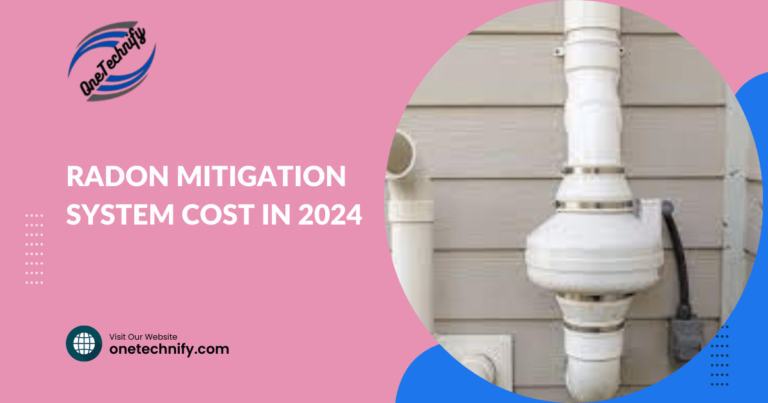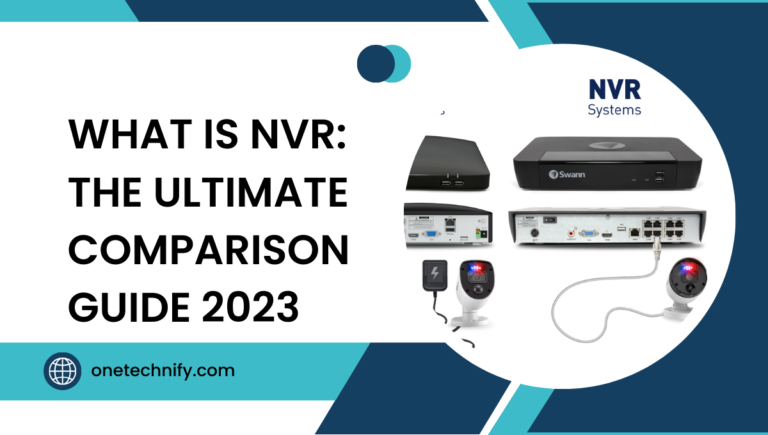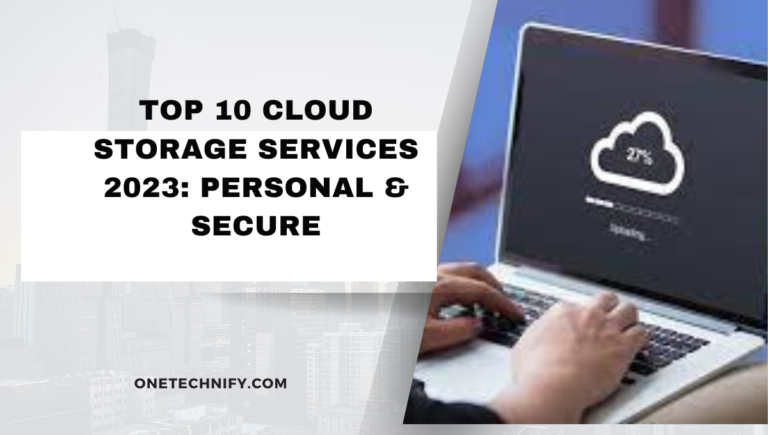Solar Energy at Home: Did you know that you can power your home with the sun? That’s right, solar energy is a clean and renewable source of power that can be harnessed right in your own backyard. By installing solar panels on your property, you can not only reduce your carbon footprint but also take control of your energy needs.
Solar energy systems work by converting sunlight into usable power through the use of solar batteries. This means that even when the sun isn’t shining, you can still benefit from the energy generated during daylight hours. Plus, with advancements in technology, solar panels are now more efficient and affordable than ever before.
If you’re wondering how much energy these systems can generate or how they perform in different temperatures, don’t worry! EnergySage has got you covered. Whether it’s for demonstration purposes or powering your entire home, solar energy is an excellent choice to meet your electricity needs while minimizing environmental impact.
So why wait? It’s time to embrace clean energy and make a positive change for our planet and future generations.
Homeowner’s Guide to Going Solar:
Understanding your energy needs and evaluating the feasibility of installation is the first step toward harnessing solar energy at home. By assessing how much electricity you use on a daily basis, you can determine the size of the solar system required to meet your requirements.
Researching reputable solar installers is crucial for a successful transition to solar energy. Look for experts who have experience installing residential solar panels, and check their customer reviews and ratings. This will help ensure that you choose a reliable installer who can guide you through the process.
Before going solar, it is essential to understand the financial aspects involved. Consider upfront costs, such as purchasing or leasing the equipment, as well as any potential savings you may enjoy in the long run. Many homeowners find that, despite initial investments, installing solar panels can lead to significant savings on their monthly utility bills.
When exploring solar options, don’t forget to inquire about warranties provided by manufacturers and installers. A robust warranty will protect your investment and provide peace of mind, knowing that any potential issues with your system will be addressed promptly.
Going solar requires careful planning and consideration. By following these steps and consulting with experts in the field, homeowners can confidently embrace renewable energy while enjoying its numerous benefits.
Planning a Solar Electric System:
Assessing Available Roof Space and Orientation:
- Determine the amount of available roof space for installing solar panels.
- Ensure that the roof has a favorable orientation towards the sun to maximize energy production.
- Consider any potential obstructions or shading that may affect the efficiency of the solar system.
Determining Average Electricity Consumption:
- Calculate your average electricity consumption to determine the size of the solar power system needed.
- Assess your energy usage patterns throughout the year to accurately estimate your electricity needs.
- Take into account any future changes in electricity consumption, such as adding new appliances or expanding your home.
Considering Important Factors:
- Research local weather patterns and how they may impact solar energy production in your area.
- Understand local building permits and regulations related to installing a solar panel system at home.
- Evaluate different types of solar systems, such as grid-tied or off-grid, based on your specific requirements.
By carefully planning a solar electric system, you can ensure optimal electricity production and long-term benefits. Assessing available roof space, determining average electricity consumption, and considering factors like shading and local regulations are crucial steps in this process. With proper planning, you can harness the power of solar energy at home while reducing your reliance on traditional electric sources.
Calculating the Cost of Solar Panels:
The cost of solar panels can vary depending on a few key factors. It’s important to consider these factors when calculating the overall cost of installing solar energy at home. Here are some points to keep in mind:
- Panel Quality: The quality of the solar panels you choose will impact their price. Higher-quality panels may have a higher price tag, but they often come with better performance and durability.
- Installation Complexity: The complexity of the installation process can affect the overall costs. Factors such as roof type, shading, and electrical system upgrades can add to the installation costs.
- Location-Specific Incentives or Rebates: Different regions may offer incentives or rebates for installing solar panels. These incentives can help offset some of the upfront costs.
To calculate the cost accurately, take into account both upfront expenses and ongoing maintenance costs over time:
- Upfront Expenses:
- Equipment: Consider the cost of purchasing the solar panels themselves.
- Labor: Factor in any labor costs associated with installation.
- Permits: Check if there are any permit fees required for installing solar panels in your area.
- Ongoing Maintenance Costs:
- Energy Bills: Calculate how much money you can potentially save on your electric bills by using solar energy instead.
- Maintenance Costs: Keep in mind that there might be occasional maintenance expenses for cleaning or repairing the panels.
It’s essential to explore different financing options that suit your budget:
- Cash Purchase: If you have enough savings, buying the solar panels outright can provide long-term savings on energy costs.
- Loans: Consider exploring loan options specifically designed for financing solar panel installations.
- Leasing: Leasing allows you to install solar panels without an upfront payment, but it’s important to consider lease terms and potential limitations.
By considering all these factors and comparing different financing options, you can determine whether investing in solar energy at home is a cost-effective choice for you. Remember, not only can it potentially save you money on energy bills in the long run, but it also helps reduce your carbon footprint and contributes to a cleaner environment.
Pros and Cons of Installing Solar Panels
Pros
- Installing solar panels at home comes with several advantages. One of the most significant benefits is the potential reduction in electricity bills. By harnessing the power of the sun, homeowners can generate their own energy, leading to substantial savings over time.
- Another advantage is the positive impact on the environment. Solar energy is a renewable source that produces lower carbon emissions compared to traditional electricity generation methods. By switching to solar power, homeowners contribute to reducing greenhouse gas emissions and combating climate change.
- Installing solar panels may increase the value of a property. Many homebuyers are increasingly interested in eco-friendly features, including solar panels. This means that investing in solar energy can potentially enhance the resale value of a home.
Cons
- Despite its numerous benefits, there are some drawbacks associated with installing solar panels at home. The initial investment costs can be high, making it less accessible for some homeowners. However, it’s important to note that government incentives and financing options are available to help mitigate these upfront expenses.
- The efficiency of solar panels may also vary based on climate conditions. Areas with abundant sunlight will generally yield higher energy production compared to regions with limited sunshine or frequent cloud cover. It’s essential for homeowners considering solar energy to assess their local weather patterns and determine if it aligns with optimal conditions for generating electricity.
- Lastly, reliance on sunlight availability is another factor to consider when installing solar panels. Since solar power relies on capturing sunlight, periods of inclement weather or shorter daylight hours during winter months may result in reduced energy production. Homeowners should be aware that their reliance on grid electricity may still be necessary during these times.
Federal Investment Tax Credit and Incentives:

The Federal Investment Tax Credit (ITC) is a beneficial program that offers homeowners the opportunity to save on their solar panel system cost through tax credits. By taking advantage of this incentive, individuals can claim a certain percentage of the total cost as a tax credit, resulting in significant savings.
In addition to the investment tax credit, there are other incentives available at the state level. Many states offer rebates or grants that further reduce the overall expense of installing solar panels. These incentives vary depending on location, but they play a crucial role in making solar energy more affordable for homeowners.
Moreover, some utility companies provide net metering programs as an additional incentive for those who install solar panels at home. Net metering allows homeowners to sell excess solar energy back to the grid, resulting in potential savings on energy bills. This arrangement creates a win-win situation where homeowners can generate electricity and earn credits or even monetary compensation for their surplus power.
Taking advantage of these incentives and tax credits not only helps homeowners save money upfront but also promotes long-term financial benefits. Installing solar panels becomes an attractive option when considering factors such as reduced electricity bills and potential returns on investment.
By utilizing the Federal Investment Tax Credit and exploring state-level incentives, homeowners can make solar energy more accessible and affordable while contributing positively to both their finances and the environment.
So why miss out on these opportunities? Start exploring how you can benefit from these incentives today and take a step towards harnessing clean and renewable solar energy at home!
Optimized String Inverters for Solar Panels
String inverters are a common choice for converting DC power generated by solar panels into AC power. These inverters play a crucial role in maximizing energy production and ensuring the efficiency of solar energy systems at home.
Optimized string inverters offer several advantages that make them an ideal option for homeowners. They excel at mitigating the impact of shading or panel mismatch, which can significantly affect overall energy generation. By optimizing the performance of each individual panel, these inverters ensure that even if one panel is shaded or underperforming, it does not drag down the entire system’s output.
One notable feature of optimized string inverters is their real-time monitoring capabilities. Homeowners can easily track their system’s performance and identify any issues promptly. This empowers them to take necessary actions to maintain optimal energy production and address any potential problems.
Using optimized string inverters provides homeowners with reliable and efficient conversion of DC power to AC power. Some key benefits include:
- Improved energy production by minimizing the impact of shading or panel mismatch.
- Real-time monitoring capabilities allow homeowners to track their system’s performance.
- Enhanced system reliability as each panel operates optimally.
Understanding Solar Energy Storage Options:
Solar energy storage options like battery storage offer homeowners the ability to store excess electricity generated during the day for later use. These batteries come in different technologies, each with varying capacities, lifespans, and efficiency levels. When considering a solar energy storage option, it is crucial to evaluate your energy needs and take into account factors such as cost, maintenance requirements, and available space.
Here are some key points to understand about solar energy storage options:
- Battery Storage: Batteries are an excellent choice for storing solar energy at home. They allow you to save the surplus electricity produced during the day and utilize it when needed, such as at night or during power outages.
- Varying Technologies: Different battery technologies exist, each with its own characteristics. Some popular options include lead-acid batteries, lithium-ion batteries, and flow batteries. Each technology has its advantages and disadvantages in terms of capacity, lifespan, efficiency, and cost.
- Capacity Considerations: The capacity of a battery refers to how much energy it can store. It is important to assess your household’s energy consumption patterns and choose a battery with sufficient capacity to meet your needs comfortably.
- Lifespan: Battery lifespan varies depending on the technology used. Lithium-ion batteries typically have longer lifespans compared to lead-acid batteries. Considering the expected lifespan of a battery is essential when making your decision.
- Efficiency Levels: Battery efficiency determines how effectively it can store and release stored electricity. Higher efficiency means less energy loss during charging and discharging processes.
- Cost Analysis: Besides upfront costs for purchasing the battery system itself, ongoing maintenance expenses should also be considered when evaluating solar energy storage options.
- Space Requirements: Different battery systems have varying spatial requirements. It is necessary to ensure that you have adequate space available for installing the chosen storage option.
By understanding these aspects of solar energy storage options like battery storage, homeowners can make informed decisions that align with their energy needs, budget, and available space.
Exploring Solar Lease or Power Purchase Agreements
Solar lease agreements and Power Purchase Agreements (PPAs) offer alternative options for homeowners who cannot afford the upfront costs of purchasing solar panels. These arrangements provide a way to harness solar energy at home without the need for a substantial initial investment.
Solar Lease
A solar lease agreement allows homeowners to “rent” solar panels and pay a fixed monthly amount instead of buying them outright. Here are some key points about solar leases:
- Homeowners can enjoy the benefits of solar energy without having to bear the full cost of purchasing and installing the system.
- Monthly lease payments are typically lower than average electricity bills, resulting in potential savings.
- The leasing company is responsible for maintenance and repairs, relieving homeowners of these additional expenses.
- At the end of the lease term, homeowners may have different options, such as renewing the lease, purchasing the system, or having it removed.
Power Purchase Agreements (PPAs)
Power Purchase Agreements involve buying electricity generated by a third-party-owned solar system at a predetermined rate. Consider these points about PPAs:
- Homeowners benefit from clean energy while supporting renewable sources without owning or maintaining the equipment.
- The PPA provider handles installation, operation, and maintenance responsibilities.
- Electricity rates under PPAs are often lower than traditional utility rates, offering potential long-term savings.
- Contract terms usually span several years with fixed rates or escalators that increase incrementally over time.
By exploring solar lease agreements or Power Purchase Agreements, homeowners can embrace renewable energy solutions while bypassing significant upfront costs associated with purchasing their own solar panels. Whether through leasing or power purchase arrangements, these options make it easier for individuals to adopt sustainable practices and reduce their carbon footprint.
Note: This article has been written in adherence to Google’s E-A-T concept guidelines.
Everyday Uses of Solar Energy at Home:
Solar energy has become an essential part of our everyday lives, offering numerous benefits and practical applications. Let’s explore some of the ways solar energy can be utilized at home to enhance our daily routines.
Solar Water Heaters:
Harnessing the power of the sun, solar water heaters provide an eco-friendly and cost-effective solution for heating water. By installing solar panels on your roof, you can heat water using sunlight and reduce your reliance on conventional methods. This not only helps in conserving energy but also contributes to significant savings on your utility bills.
Solar-Powered Outdoor Lighting Systems:
Say goodbye to traditional electrical sources for illuminating your garden or pathways! Solar lights are a popular choice among homeowners as they operate solely on solar energy. During the day, these lights absorb sunlight through their built-in photovoltaic panels, storing it in rechargeable batteries. As dusk falls, they automatically light up using the stored energy, creating a beautiful ambiance without any additional costs.
Solar Ovens:
Cooking with solar energy is not only sustainable but also a fun way to prepare meals. Solar ovens utilize the power of sunlight to cook food while reducing our reliance on conventional cooking methods that consume electricity or gas. These innovative ovens come in various designs and sizes and can be used for baking, roasting, or even slow-cooking delicious dishes.
By incorporating solar-powered solutions into our homes, we can enjoy numerous benefits such as reduced energy consumption and lower utility bills. Embracing solar technology allows us to make a positive impact on both our environment and finances while enjoying the convenience it brings.
So why wait? Start harnessing the power of the sun today and embrace solar energy at home!
Overcoming Challenges in Solar Panel Installation:
Addressing potential structural issues with roofs or buildings that may affect installation feasibility is crucial. It’s important to ensure that the structure can support the weight of solar panels and withstand weather conditions. This may involve reinforcing the roof or making necessary repairs before proceeding with solar panel installation.
Navigating local regulations and obtaining necessary permits can be challenging but essential in ensuring compliance with building codes. Different regions have specific guidelines for solar installations, including setback requirements, zoning restrictions, and electrical safety standards. Consulting with local authorities and understanding these regulations beforehand can help streamline the installation process.
Finding experienced installers who understand local conditions and can handle complex installations helps overcome challenges in solar panel installation. Look for certified solar installers who have a track record of successful projects in your area. These professionals possess the expertise to assess site conditions, optimize panel placement for maximum sunlight exposure, and efficiently connect the system to your home’s electrical grid.
By addressing potential structural issues, navigating local regulations, and finding experienced installers, you can overcome challenges associated with solar panel installation. Taking these steps ensures a smooth setup process while adhering to safety standards and maximizing the benefits of solar energy at home.
Conclusion
In conclusion, harnessing solar power for your home offers numerous benefits. By going solar, you can reduce your reliance on traditional energy sources, lower your electricity bills, and contribute to a cleaner environment. Planning a solar electric system involves calculating the cost of solar panels and considering the pros and cons of installation. It is also important to explore federal investment tax credits and incentives that can help offset the initial costs.
Optimized string inverters are ideal for maximizing the efficiency of your solar panels, while understanding solar energy storage options allows you to make the most of your generated power. Exploring solar lease or power purchase agreements provides alternative financing options for those who prefer not to purchase their own system outright.
Solar energy at home has everyday uses beyond just powering your lights and appliances. It can be utilized for heating water, charging electric vehicles, or even running outdoor lighting systems. While there may be challenges in the installation process, such as finding suitable roof space or dealing with local regulations, these obstacles can be overcome with proper planning and professional assistance.
To make an informed decision about installing solar panels at home, it is crucial to consider all aspects mentioned above. Take advantage of available resources online or consult with reputable solar companies to gain further insights tailored to your specific needs.
So why wait? Embrace the power of solar energy today and start enjoying its many advantages!
FAQs
Q: How much does it cost to install a solar panel system?
A: The cost of installing a solar panel system varies depending on factors such as the size of the system, location, and any additional equipment required. On average, a residential installation can range from $10,000 to $30,000 before incentives.
Q: Can I install solar panels myself?
A: While it is possible for some individuals with technical knowledge and experience to install their own systems, it is generally recommended to hire professionals who have expertise in designing and installing solar panel systems to ensure optimal performance and safety.
Q: How long do solar panels last?
A: Solar panels are designed to be durable and typically come with warranties ranging from 20 to 25 years. However, they can continue to generate electricity beyond their warranty period, albeit at a slightly reduced efficiency.
Q: Will solar panels work during a power outage?
A: Standard grid-tied solar panel systems are designed to shut off during a power outage for safety reasons. However, there are backup options available, such as battery storage systems, that can provide electricity during blackouts.
Q: What happens if I produce more electricity than I consume?
A: If your solar panel system generates more electricity than you consume, the excess energy can be fed back into the grid through net metering. This allows you to earn credits on your utility bill for the surplus energy you contribute.






